Academic biography
- 2018-2022 Westminster International University in Tashkent, BSc Economics with Finance
- 2022-2024 Westminster International University in Tashkent MA International Business Management
- 2024-present PhD student of Westminster International University in Tashkent
Employment
- 2019-2022 Specialist of equity securities market OJS “Uzbekenergota`mir”
- 2022-2025 Enrolment Manager QS (Quacquarelli Symonds)
- 2025 – present Business Development Manager for CIS countries Berlin School of Business and Innovation
Expertise
Higher Education Management; International Student Recruitment; Strategic Planning; Market Analysis; Academic Research and Sustainable DevelopmentDoctoral project
Title “Institutional Competitiveness and Global Rankings: Governance Challenges for Uzbek Universities”This doctoral research investigates how governance and strategic management practices shape the international competitiveness of universities in Uzbekistan, with a particular focus on their positioning in global university rankings such as QS World University Rankings, Times Higher Education (THE) World University Rankings, and Academic Ranking of World Universities (ARWU).
In the context of Uzbekistan’s post-independence higher education reforms, the Presidential Decree No. UP-5847 (2019) set an ambitious target to place at least ten national universities among the top 1,000 globally by 2030 (Republic of Uzbekistan, 2019). Recent achievements, such as the entry of Uzbek universities into the QS and THE Top 1000 for the first time in 2024–2025, underscore progress but also highlight persistent governance challenges and strategic management gaps (Gov.uz, 2025; QS, 2024).
The research addresses four key questions:
1. What strategic management practices are currently employed by Uzbek universities to improve their international rankings?
2. To what extent do these practices align with the key criteria of major global ranking systems?
3. How can Uzbek universities optimise resource allocation and policy frameworks to enhance global competitiveness?
4. What are stakeholder perceptions (e.g., administrators, faculty, students)—regarding the effectiveness of current strategies?
The study applies an integrated theoretical framework combining Strategic Management Theory (Mintzberg, 1994), the Resource-Based View (RBV) (Barney, 1991), Stakeholder Theory (Freeman, 1984), and institutional theory to examine strategic alignment and governance in higher education.
Methodologically, it adopts a qualitative-dominant mixed-methods approach:
- Semi-structured interviews with university leaders, ministry officials, and ranking agency experts (Adams, 2015).
- Document analysis of institutional strategies and policy documents against ranking criteria.
- Surveys and focus groups with faculty, staff, and students to capture stakeholder perceptions.
- Thematic coding and content analysis for qualitative data, alongside descriptive statistics and sentiment analysis for quantitative insights.
Practically, the findings will inform national policy-making, guide institutional leadership, and provide ranking organisations with contextual insights into the unique challenges of universities in transitional economies. The proposed framework is intended to support Uzbekistan’s higher education system in achieving sustainable competitiveness while aligning with global quality standards.
Publications
- Khamidova, M. and Jibril, A. (2024). Drivers of Higher Education Rankings: A Case Study of Uzbekistan. Journal of International Education and Practice, [online] 7(1), pp.41–41. doi:https://doi.org/10.30564/jiep.v7i1.5547
- Khamidova, M. (2024). Sustainable Management Practices in Higher Education Institutions. [online] Econferenceseries.com. Available at: https://econferenceseries.com/index.php/icmsss/article/view/5433/5316
- Xamidova, M. (2024). Socio-Economic Determinants of Crude Divorce Rates in Developing European Countries A Panel Data Study (1999-2017. Proceedings of Scientific Conference on Multidisciplinary Studies, 3(8), 49–50. Retrieved from https://econferenceseries.com/index.php/scms/article/view/5407
- Xamidova, M. (2024). Drivers of Higher Education Rankings: A Case Study of Uzbekistan. Proceedings of Scientific Conference on Multidisciplinary Studies, 3(8), 47–48. Retrieved from https://econferenceseries.com/index.php/scms/article/view/5406
Conference participations, scientific talks





